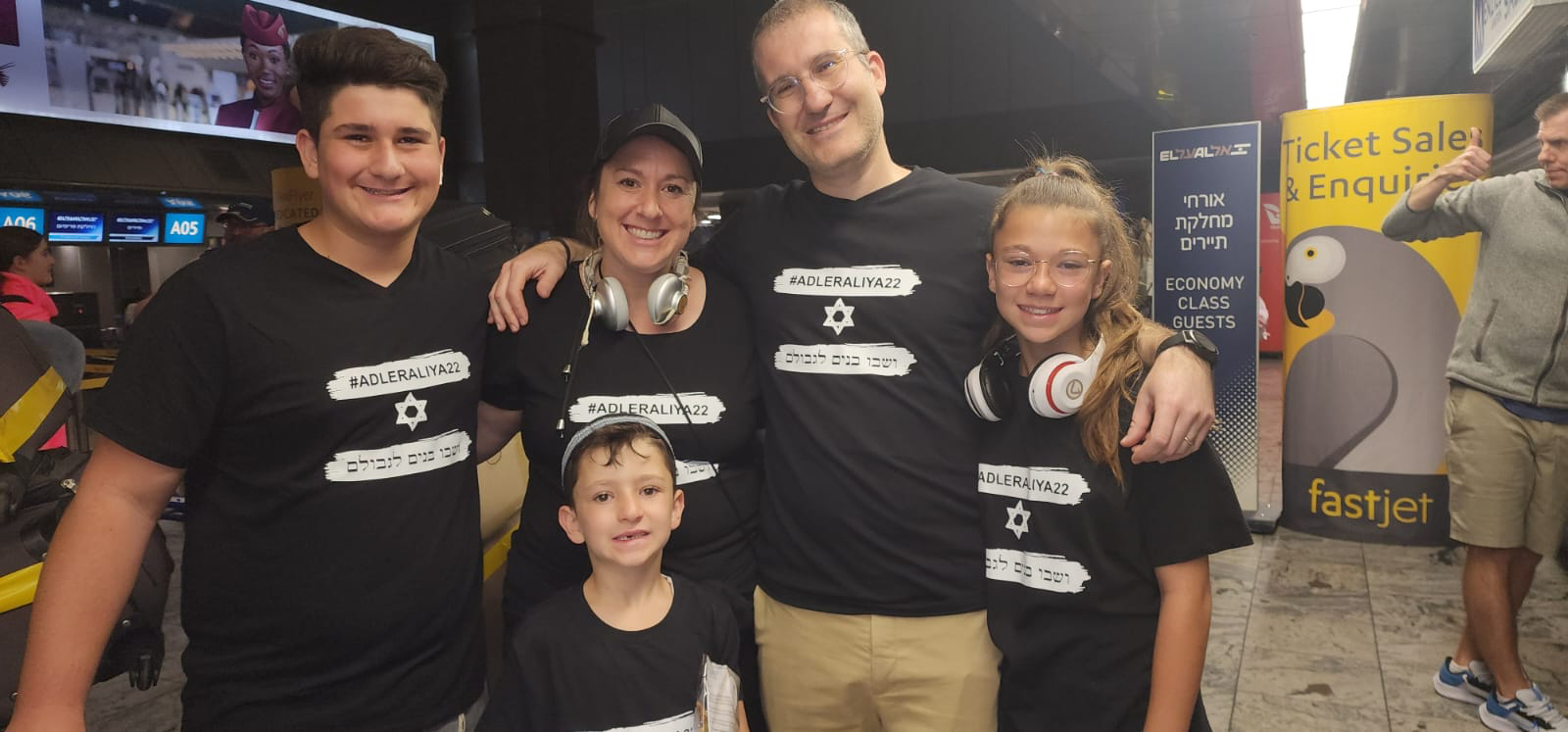
Israel

Aliya still high, but don’t rush to leave, say experts
Though aliya numbers from South Africa were lower in 2022 than the previous year, about 1% of the South African Jewish community is making aliya annually. So says Liat Amar Arran, the director of the Israel Centre South Africa. In addition, there’s one aliya flight a month from South Africa, which has about 20 to 40 people on each flight.
According to the official numbers from the Jewish Agency, 471 South Africans made aliya in 2022. Following the record breaking numbers in 2021 in which there were 577 South African olim, the trend continues with the highest aliya numbers since 1994. Already in the new year, 38 olim arrived on a group flight in January, and about 20 on a group flight in February.
“This was the first year after the pandemic, and there were no riots like there were in 2021. It gave people a chance to ‘breathe’, and not rush to leave,” says Amar Arran, regarding the slightly lower numbers in 2022. However, the numbers aren’t what drive her. “I care that everyone is making aliya for the right reasons and with the right integration plan. I want their decision to be made based on what they are losing here and getting there. We’re here to help people weigh up the pros and cons.”
People who are struggling financially sometimes see aliya as the solution, “but it doesn’t always mean a better life”, Amar Arran says. However, “if you cannot afford solar power, a borehole, and a generator”, it might be better to go to Israel. She continues to see South African Jews going to live in Israel for ideological reasons. There are many families who feel that their children will have better opportunities there.
The olim come from all demographics, Amar Arran says: youth, lone soldiers, students, couples, young families, middle aged people, elderly, secular, and religious. This is no different to previous years. Because Johannesburg is a bigger community, most olim come from there, while about 10% hail from Cape Town. A few families a year make aliya from Durban.
She says the biggest challenges facing olim are the language and change in lifestyle. Some struggle to find work. However if you’re “willing to compromise on what job you do, you’ll find opportunities. Some are finding great jobs and loving what they’re doing.”
She notes that it’s difficult to find a job before arriving, as most companies will hire only once the person is in Israel. Olim also need to decide where they want to live before seeking employment. Children mostly adapt quickly and love the freedom Israel offers. “It’s important to find the right school as it’s a very different education system,” Amar Arran says.
Telfed Chief Executive Dorron Kline agrees that the pandemic drove the high aliya numbers, but says they are now back down to what they were before, similar to 2019. “The majority are young families with children. Many people see a future for their children in Israel, even though it’s a difficult adjustment for adults.”
South Africans are settling in Jerusalem, Tel Aviv, Tel Mond, Beit Shemesh, Netanya, Modi’in, and Ra’anana, he says, and there are about 25 000 South African olim in Israel altogether.
His advice to anyone making aliya is to “concentrate on learning Hebrew. Do an ulpan in South Africa and when you get to Israel. Most can get by without good Hebrew, but you don’t want to just ‘get by’, you want to be absorbed and part of the country. If not, you’ll always be one step behind.”
Regarding employment, “You still need to do an ulpan in Israel, settle down, and decide where you want to live. So it’s unusual to have a job waiting. That’s why you get a sal klita [basket of absorption benefits] to support you when you arrive.”
He emphasises that olim should contact Telfed as soon as they’ve made their decision. “The sooner you contact us, the more we can help your absorption, and the smoother it will be. We help to make sure that your absorption plan makes sense.”
He says all Telfed services are free, and they have a full-time employment advisor, who can offer vital support. “For example, you may be a bookkeeper who has studied a specific programme. But we can say, ‘They don’t use that programme in Israel, they use this.’”
Telfed also offers support from its 24 regional committees made up of South African olim who live around Israel who can offer advice on living in those areas. There are also 145 professional volunteers who are successful South African olim that can advise on their industry and even help someone find a job.
Though 98% of olim do well, Telfed supports about 450 needy individuals every month. “Often they have fallen on hard times like illness, divorce, or a death in the family. Some have poor financial planning or brought their challenges with them.”
He advises against making aliya if you are already on welfare. “It’s much easier to navigate the welfare system when you know the community and the community knows you. In Israel, all forms and meetings are in Hebrew, and you don’t have family and friends for support.”
In addition, anyone suffering from mental illness needs to know that making aliya is stressful. “It’s a new country, culture, language, and weather, and they’re leaving friends, family, and the familiar. So even if they were stable in South Africa and are taking the same medication in Israel, the stress can knock them off kilter.”
Kline says people need to be realistic about the cost of living in Israel, and need to live in an area they can afford. Even if they aren’t close to the main centres, there are wonderful places to live with warm English-speaking communities. These areas can be 30% to 40% cheaper than living in the main centres.
“Israel welcomes olim, and there are so many opportunities, programmes, and people working around helping olim,” says Amar Arran. “At the same time, no one is going to make your aliya successful other than you. You need to take it forward, build relationships, look for help, do research, and then you will succeed. It can take at least a year to feel settled.”
She predicts that 300 to 400 people will make aliya in 2023, depending on the political situation in South Africa and Israel. “But I think the numbers will get less because the community is shrinking.”
She has about six months before her shlichut in South Africa comes to an end. “I might stay until my successor comes. We have a brilliant team, and I’m sure the next person will make things even better. The main thing we do is give an honest, realistic picture, and that allows olim to succeed.”
Amar Arran believes there will always be a Jewish a community in South Africa, and that a strong diaspora is important. “I can’t promise that Israel will give you a better life. You need to balance the pros and cons yourself, and get there with all the challenges along the way.”










